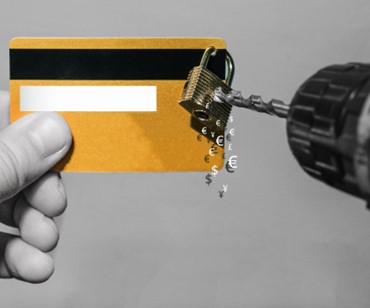Nathan DeLadurantey is a consumer rights attorney practicing in the state of Wisconsin. In the following article, Nathan DeLadurantey explains how consumers can protect themselves from identity theft.
Accord to the United States Federal Trade Commission, the number of reported identity theft cases has risen roughly 387% in the last four years. This accounts for more than 1.4 million instances in 2021 alone, pushing many to question how they can protect themselves online and prevent identity theft. Fortunately, attorney Nathan DeLadurantey says that by implementing basic security measures and understanding how identity theft works, anyone can protect themselves from becoming a victim.
By creating strong and unique passwords for every website, enabling two-factor authentication, and learning the tell-tale signs of a potential threat, netizens can keep their personal information private and prevent potential phishing schemes. Additionally, by closely monitoring their credit and bank details, potential victims can quickly spot an irregularity and seek legal representation if needed.
Understand and Identify Possible Risks
Although Hollywood loves to depict identity thieves as super-hackers, the majority of cases are caused by basic user error explains Nathan DeLadurantey, attorney. This can be as simple as responding to a phishing email or not properly securing a home Wi-Fi network. Additionally, many people unwittingly give away personal information through social media posts or by not being aware of what data is being shared when they sign up for a new service.
Fortunately, Nathan DeLadurantey reports that by learning to spot the red flags of a scam, anyone can quickly identify and avoid a potential risk. These include:
- Emails or calls from unknown numbers claiming to be from a bank or other financial institution
- Emails with typos or grammatical errors
- Unsolicited requests for personal information such as Social Security numbers or bank account details
- Any unsolicited offer that seems too good to be true
By being aware of these and other potential risks, people can protect themselves from becoming victims before a scammer even has the opportunity to carry out their attack.
Create Strong and Site-Specific Passwords
This may seem like an obvious answer, but more than 23 million people are reported to still use “123456” as a password. This simply isn’t strong enough to protect someone’s valuable information explains attorney Nathan DeLadurantey. A secure password should be at least eight characters long and include a mix of upper- and lower-case letters, numbers, and symbols. Additionally, it’s important to create a unique password for every site.
This may seem like a lot to keep track of but there are plenty of password managers available that can do the work digitally and, by using a different password for every site, it can ensure that even if one is compromised, the rest of their accounts remain secure.
Enable Two-Factor Authentication
Nathan DeLadurantey says that two-factor authentication (2FA) is an added layer of security that can be used with any online account. With 2FA, a user not only has to enter their password but also a code that is sent to their phone or email. This makes it harder for a hacker to access an account, even with the password, as they would also need to physically have the user’s phone or email.
Monitor Credit and Bank Accounts
Although credit cards and other financial institutions have become much better at spotting and preventing fraud, it’s still important for users to closely monitor their accounts. This includes checking credit reports regularly and being on the lookout for any unauthorized charges or withdrawals.
If anything suspicious does come up, it’s important to act quickly and report it to the bank or credit card company. They will then be able to investigate and take the necessary steps to protect the account.

When to Seek Legal Support
Nathan DeLadurantey explains that if some believe they’ve been the victim of identity theft, they should seek legal support as soon as possible. An experienced attorney can help them understand their rights and take the necessary steps to protect their information. An attorney can also help file a police report and, if necessary, take action against the person or company responsible.
When a victim first meets with an attorney, they’ll assess when the theft occurred and what, if any, information the victim believes to have been stolen. They will then likely want to review any relevant documentation, such as credit card and bank statements.
Then, once they have a better understanding of the case, they will be able to advise the victim on the best course of action and help them take necessary steps to protect their information and seek justice. If the victim is able to locate the thief, the attorney can also help prosecute the criminal explains Nathan DeLadurantey.
Final Thoughts
Identity theft is a serious problem but by taking the proper precautions, it is possible to protect oneself online. By being aware of the risks, creating strong passwords, enabling 2FA, and monitoring financial accounts, anyone can ensure that their personal information remains safe and secure. If something suspicious does happen, they can then seek legal advice.








